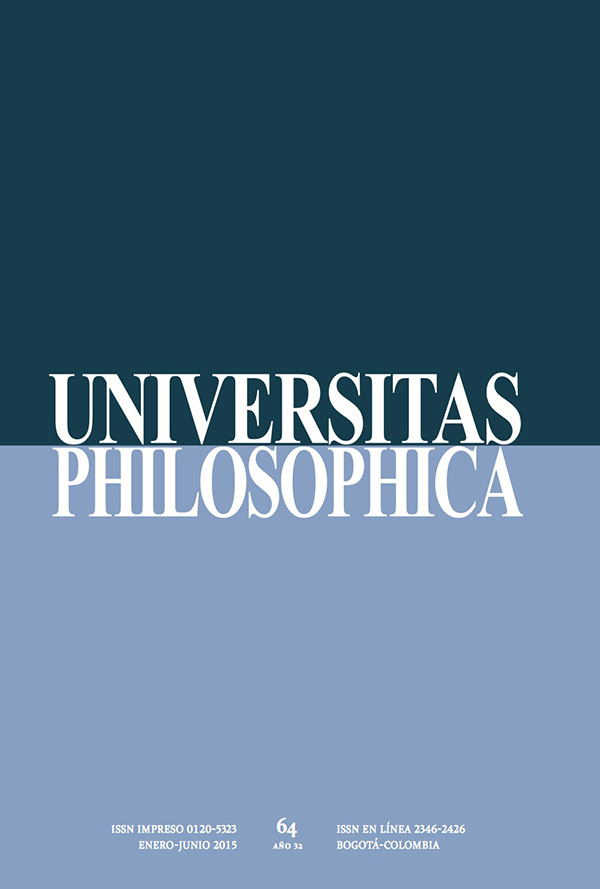Resumo
Típicamente, el perdón se convierte en un problema cuando un ofensor ha dañado a una víctima. Cuando se comprometen en un proceso de dar y conceder perdón, al ofensor y a su víctima les interesan las relaciones sociales que previamente existieron entre ellos. Partiendo del trasfondo de estas relaciones surge la pregunta de si para la víctima perdonar es un deber y si el ofensor tiene el derecho de ser perdonado. Sugiero distinguir entre relaciones personales y morales entre personas: las morales vinculan a todo agente racional a la comunidad de todos los agentes morales, mientras que las primeras son de carácter personal. En este sentido, distingo entre perdón personal y moral. Y discuto que el ofensor tiene derecho a ser moralmente perdonado, o por la misma víctima o por otro miembro de la comunidad de agentes morales; pero la víctima no tiene un deber de perdonar personalmente al ofensor.
Esta revista científica se encuentra registrada bajo la licencia Creative Commons Reconocimiento 4.0 Internacional. Por lo tanto, esta obra se puede reproducir, distribuir y comunicar públicamente en formato digital, siempre que se reconozca el nombre de los autores y a la Pontificia Universidad Javeriana. Se permite citar, adaptar, transformar, autoarchivar, republicar y crear a partir del material, para cualquier finalidad (incluso comercial), siempre que se reconozca adecuadamente la autoría, se proporcione un enlace a la obra original y se indique si se han realizado cambios. La Pontificia Universidad Javeriana no retiene los derechos sobre las obras publicadas y los contenidos son responsabilidad exclusiva de los autores, quienes conservan sus derechos morales, intelectuales, de privacidad y publicidad.
El aval sobre la intervención de la obra (revisión, corrección de estilo, traducción, diagramación) y su posterior divulgación se otorga mediante una licencia de uso y no a través de una cesión de derechos, lo que representa que la revista y la Pontificia Universidad Javeriana se eximen de cualquier responsabilidad que se pueda derivar de una mala práctica ética por parte de los autores. En consecuencia de la protección brindada por la licencia de uso, la revista no se encuentra en la obligación de publicar retractaciones o modificar la información ya publicada, a no ser que la errata surja del proceso de gestión editorial. La publicación de contenidos en esta revista no representa regalías para los contribuyentes.


